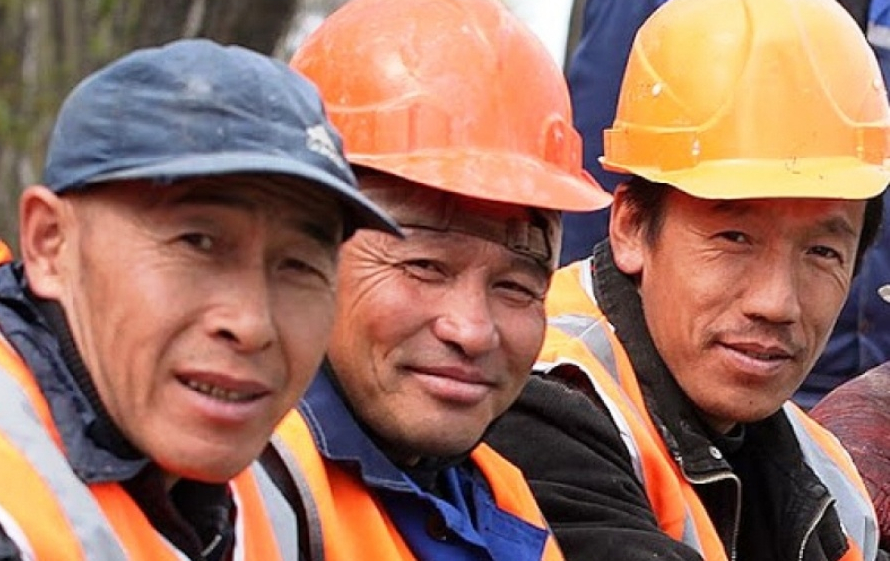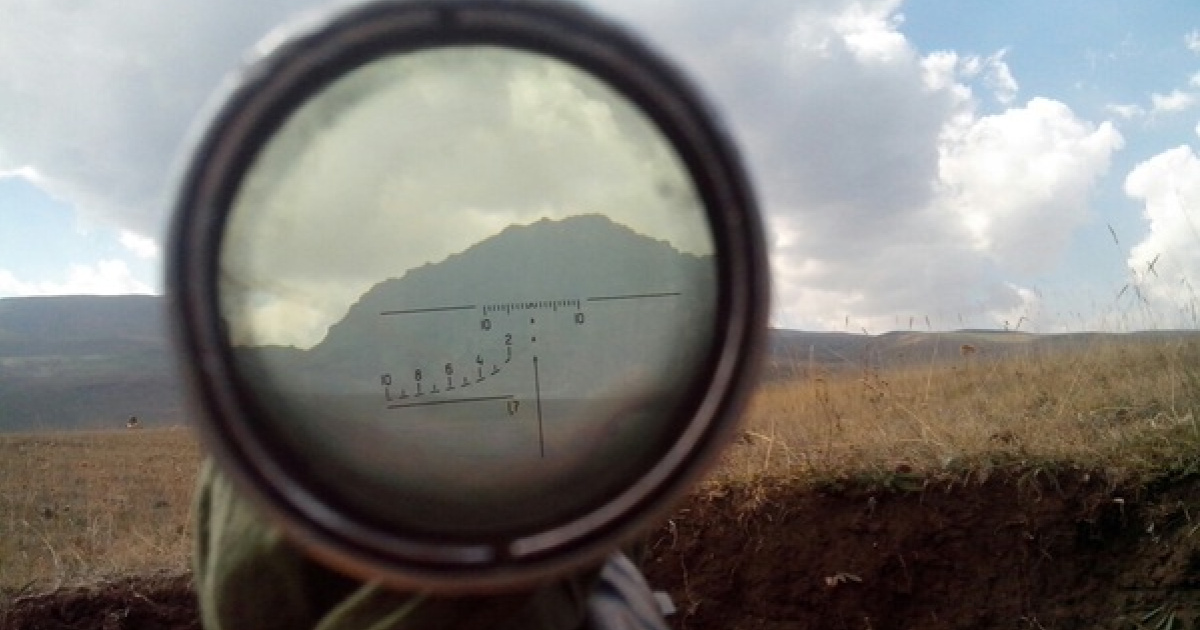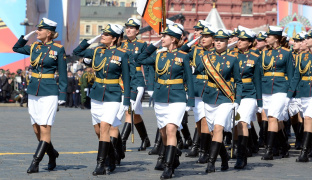
Concerns about mobilization issues in Ukraine have been raised at the highest level for the first time. While previously only some experts spoke about it, in the past couple of months, the topic has been taken up by members of parliament and even the President. However, information is presented under different contexts.
Some talk about the need to strengthen mobilization exclusively in the context of demobilizing those who have been fighting on the front since the beginning of the full-scale invasion. Others discuss the need to streamline the Soviet and imperfect system. Still, others, without hesitation, speak of the failure of mobilization and the forced intensification of its methods. As always, the truth lies somewhere in the middle.
Roman Kostenko, the Secretary of the Committee on National Security, Defense, and Intelligence of the Verkhovna Rada, does not shy away from assessment and directly speaks of the failure of mobilization.
"We all know that we currently have a problem with mobilization, you could say, a failure of mobilization. After the conscription officials were replaced, we experienced a failure of mobilization. This is a situation that needs to be addressed quickly. If we do not influence and change anything, we will have very big problems. Currently, perhaps, the problems with mobilization are greater than the problems with ammunition. Therefore, we need to influence this now and do something", - he stated.
According to him, a solution requires the decision of the country's political leadership.
"It is a question of the political leadership - the adoption of laws that have long been unsigned, to sign them - on reducing the mobilization age or something else", - noted the member of parliament.
President of Ukraine, Volodymyr Zelensky, has taken a more moderate position. He spoke about "comprehensive changes" and in late November instructed the Minister of Defense Rustem Umerov, the Commander-in-Chief of the Armed Forces Valeriy Zaluzhny, and the ministries to develop a comprehensive plan for mobilizing conscripts.
"Everyone in Ukraine understands that changes are needed in this area. And it's not just a question of the number of people who can be mobilized. It's a question of timing—for everyone currently in the army, for demobilization, and for those who will join the army. And it's a question of conditions. These are complex matters that military leadership and the Ministry of Defense should develop and present to the General Staff for approval. Today, there were some proposals—I am waiting for comprehensive solutions", - he said.
Members of parliament have also not stood aside and announced the development of several bills on changes to mobilization and military service. According to them, all developments are being discussed with the country's top military leadership to eventually come up with a comprehensive document. The "Servant of the People" party lawmakers Davyd Arakhamia, Mariana Bezuhla, and Fedir Venislavsky have become the provisional spokespeople for the new mobilization bill. They sequentially report on the discussed changes. According to OstroV’s information, this is done to gauge public reaction to various upcoming innovations.
"The situation is very complex and delicate. Changes have been overdue for a long time, as the current law is a prehistoric Soviet one that does not consider modern realities. The military wants maximum restrictions: summons through the Diia app, by phone and email, lowering the conscription age to a minimum (perhaps even to 20 years), criminalization of failure to appear in response to a summons, blocking bank accounts, and so on. They not only want more opportunities to issue summons but also want people to respond to them. On the contrary, members of parliament, like the President's Office, do not want radical changes, fearing negative public reactions", - said a source in the Verkhovna Rada to OstroV.
For this reason, another source told us that a bill that was supposed to be presented in early December is still in development.
"Heated discussions are underway. Deputies are ready for radical changes, but only if there is a provision for demobilization; otherwise, what is the point of intensifying mobilization so harshly? There will be many questions otherwise. The military is categorically against demobilization. They say, 'Let's first recruit the necessary number of people, and then we'll talk about demobilization'. And so it goes in circles. There is also the position of the President's Office, which seems to oversee the whole situation. Everyone has different views on the situation", - noted an anonymous MP from the "Servant of the People" party.
Meanwhile, as MPs, the President's Office, and the top military leadership seek a compromise on changes to mobilization, Ukraine has been hit by a wave of raids by Territorial Centres of Recruitment (former military enlistment offices) in gyms, already dubbed "fitness-mobilization".
"Transitional" methods
Raids by TCR representatives in gyms in Kyiv, Odesa, Uzhhorod, Lviv, and other cities have caused quite a stir on social media. It might seem like it`s nothing new — similar raids have been observed in small towns and villages for a year, where Territorial Centres of Recruitment representatives hand out summons at train stations, in parks, near stores, and cafes.
"In Irpin, the TCR representatives have been going to local parks for a year, issuing summonses. Last summer, I saw a bus parked near the Novus supermarket, from which people in uniforms periodically came out and issued summonses. So, it's not news for us. They have been issuing summonses at checkpoints for a long time: in the morning when everyone is going to work to Kyiv, and in the evening – when everyone is coming back", - said Svitlana, a resident of the town of Irpin, to OstroV.
At the same time, large cities have been relatively safe during this time. The delivery of summonses took place at subway stations, markets, bus stops, and checkpoints. The situation further normalized when President Zelensky replaced all regional enlistment officers.
"It was a big mistake. Since then, mobilization rate has dropped significantly—this is what the military says. The new leaders of the TCR were afraid to act and they tried to work strictly within the law and regulations. But the rules are written in such a way that following them completely won't bring in many people. Therefore, in early December, the enlistment offices were green-lighted for any more or less legal methods. Therefore, raids in gyms are just the beginning; there will be raids in shopping malls, cinemas, clubs, and restaurants", - said one of the MPs from the "monomajority" to OstroV.
In addition to the mass "fitness raids" that have emptied the capital's gyms, authorities have actively introduced another mobilization method – recruiting.
According to the Secretary of the National Security and Defense Council of Ukraine, Oleksiy Danilov, commercial recruiting companies will be increasingly used to conduct more targeted conscription and assure conscripts that they will be deployed in positions matching their skills rather than simply sent to the front.
"Some people are afraid, afraid to die, afraid to shoot, but that doesn't mean they cannot be involved in other activities... Now we have a new minister with a new approach", - said NSDC Secretary Danilov in an interview with The Guardian.
It is unknown how many conscripts have been mobilized as a result of raids on gyms, but recruiting is already yielding results. The Ministry of Defense of Ukraine stated that since the start of the recruiting campaign, the number of responses to military vacancies has tripled.
Sources in the parliament claim that recruiting into the Armed Forces will expand and be widely promoted.
Moreover, in the near future, Ukraine will launch "smart mobilization", allowing Ukrainians to independently choose the military specialty they want. According to the Minister of Digital Transformation, Mykhailo Fedorov, the pilot project will be launched for mobilizing drone operators. He explained that if a person submits an application, passes selection and tests, they will undergo training – and after that, the mobilized individual will be assigned to the unit of combat drones in the position they chose. The project is expected to be launched in late February 2024.
Another issue being pushed by the military is the reduction of the conscription age within the mobilization framework. Six months ago, the Verkhovna Rada supported reducing the maximum conscription age from 27 to 25, but Zelensky has not yet signed the bill.
According to Bloomberg, citing informed sources, Zelensky's reluctance to sign the law is explained by his desire to see a "clear plan of what the army aims to achieve through conscription, where the new recruits will be directed, and how to rotate those who have spent a year and nine months on the front".
OstroV’s source in the Verkhovna Rada believes that the President is not signing the bill because he fears unpopular decisions and criticism from Ukrainians.
"The military is pressing hard to lower the conscription age to at least 25. It's just a matter of signing the already adopted law. But the President will delay it until the last moment to comprehensively present changes to mobilization. How to explain to people the reduction of the conscription age without demobilization? If there's a stick, there must be a carrot, and that's currently very scarce", - the source says.
At the same time, according to the source, there are persistent rumors that the conscription age will indeed be lowered to 25, but not within the framework of the adopted bill, but rather in a new comprehensive document.
New law: possible tightening
The head of the parliamentary faction "Servant of the People" Davyd Arakhamia, stated that the Verkhovna Rada may adopt a law regulating mobilization and demobilization issues by the end of 2023.
According to him, there are currently more than 10 bills that to some extent regulate mobilization and demobilization. The parliamentary committee on national defense and security is attempting to create a "matrix of mobilization and demobilization" and compile all existing proposals into a table, after which the bill will be registered in the Verkhovna Rada.
The comprehensive document, that is currently being developed, will address the following issues:
1. What to do with people who have been in combat for two years without rotation;
2. Why people with disabilities of the first and second groups cannot be demobilized;
3. Why fighters who have been through captivity cannot be demobilized;
4. Issues of military personnel with oncological diseases who can perform tasks in a very limited manner;
5. Adjustment of the conscription age issue.
Former presidential representative in the Verkhovna Rada, Fedir Venislavsky, stated in one of his interviews that the draft law plans to include the possibility of delivering conscription notices not only personally with a signature but also through email and registered mail.
"In terms of the relevance of email addresses, we already practically have an electronic account for conscripts and draftees, which will contain all identification data. These norms should simplify the receipt of conscription notices and prevent people from abusing the fact that they allegedly did not receive the notice and did not violate the law", - he explained.
The news caused a stir in the Ukrainian information space. Some Telegram channels started reporting that current email addresses would be taken from the Diia app’s database. After this, Venislavsky was dismissed from the position of the presidential representative in the Verkhovna Rada. While the official reason was cited as the deputy's busy schedule, a source in the ruling majority told OstroV that the real reason was his "too loose tongue".
"No one is saying that the idea of electronic conscription notices hasn't been discussed. It has been discussed. There are wishes from the military (they are extremely strict), there is the vision of the members of parliament, but the final draft that will be voted on will be approved by the President's Office. That's why such uncoordinated moments, like conscription notices via email, arise. In fact, you a lot of different things are being discussed there, it's just not made public. Venislavsky decided to share some bits with journalists at his own risk, so he paid for it", - the source claims.
Since then, the new draft law on mobilization has been commented on only by the Member of Parliament from "Servant of the People", Mariana Bezuhla. She also confirmed that the country's military leadership "submitted strictly harsh norms", and deputies are working on a realistic model.
According to her, firstly, the issue of deferment and the right to dismissal for individuals with disabilities will be regulated and those who have three or more children.
"If two servicemen have a child, then one has a deferment and the right to dismissal (either a man or a woman). That is, if a woman decides to join military service, the man can thus get a deferment", - explained the MP.
In addition, deferment from service and the right to dismissal will be granted to:
1. If there is an underage person with a disability in the family,
2. If there is an incapacitated offspring of legal age with a disability/ spouse/ spouse’s parents within the 1-2 disability groups (in this case, the person with a disability chooses who gets the deferment),
3. Guardians of a person with a disability within the 1-3 disability groups, declared legally incapacitated in a court proceeding,
4. Pregnant women and women on maternity leave,
5. Only current members of parliament (all former ones have been removed).
Deferment, but not grounds for discharge from service, may be granted to:
1. Applicants for consecutive higher education under the age of 30,
2. All scientists with academic titles,
3. All full-time teachers.
The question of canceling the deferment of mobilization for students has been under discussion for several months, yet a solution to this issue has not been found. According to an investigation by NGL Media, Ukrainians continue to use universities as a legitimate deferment from mobilization.
Open data indicates that in 2022, the proportion of first-year students in paid education increased to 70%, with their average age now being 27. There are also more male students in the age categories of 30+ and 40+, compared to statistics from previous years.
"The reasons for such gender and age imbalances are obvious—as in the previous year, student status guarantees a deferment from mobilization during the martial law", - write the investigators.
The Ministry of Education and Science also acknowledges that Ukrainians use higher education as a means to avoid military service.
"At present, the proposals before the Verkhovna Rada essentially boil down to the idea that if a person is obtaining such a level of education for the first time, a deferment may be granted. If, for example, you already have a master's degree, doubling the same level does not grant a deferment", - explained Deputy Minister of Education and Science Mykhailo Vinnytsky.
Initially, lawmakers wanted to pass a separate bill to regulate the mobilization issue for students, but now they have decided to include it in a unified comprehensive document.
"Mobilization for students will definitely change; there is the least dispute about that. The only question is in the nuances: the military want to cancel the deferment for all students over 30 during the martial law, while deputies want to soften it slightly. But here, compromise is most needed", - a source in the parliament told Ostrov.
Secondly, the new law aims to stipulate that local government bodies and administrations must conduct mobilization events (currently, the wording is "contribute to").
"In the existing law on mobilization training and mobilization, it is already provided that these bodies participate in mobilization events, but in practice, they often avoid these obligations. Additionally, we assume that military administrations will also join these measures", - explained MP Venislavsky.
Thirdly, in the new law, there is a desire to require conscripts to provide their place of residence data to their employer, undergo a medical examination during mobilization, and independently visit the Centres for the Provision of Administrative Services/Territorial Centres of Recruitment to update their information (they cannot be mobilized at the CPAS, only update data).
Moreover, according to Venislavsky, the draft law envisages that during a martial law and the declaration of general mobilization, conscripts aged 18 to 60 must, in addition to an identity document, constantly carry a document confirming their military registration and present these documents to TCR officials. This is planned to be done to "avoid involving the police in delivering summons and minimize the risks of potential conflict situations".
What will happen in the absence of a military document is not clarified by the MPs yet. According to OstroV’s information, changes are also planned in the Criminal Code and the Code of Administrative Offenses, which will tighten the responsibility for evasion of mobilization.
MPs also promise to remove the category "conditionally fit" and retain only "fit" and "unfit".
In the new law, they also want to regulate the process of handing out summonses. According to Mariana Bezuhla, these can be issued by representatives of TCR as well as police officers at the place of residence, at work, and in public places.
Furthermore, the draft law will address the abolition of conscription and the demobilization of current conscripts (but not before the second or third quarter of 2024). Former conscripts can only be called up again six months after demobilization.
Members of parliament also announce the introduction of the "Defender Certificate", which can be displayed in the Diia app.
"It’s not a summons!" – notes Mariana Bezuhla.
This will be an equivalent to a military ID, containing all information about the conscript (health status, military specialty, service experience, and so on).
According to OstroV’s information, this is a compromise with the military leadership, which persistently asks the government to involve Diia app in the mobilization process. Still, Minister of Digital Transformation Mykhailo Fedorov (as well as the President's Office) is categorically against it.
"Fedorov stands firm – no summonses in Diia app, not even a hint of it. That's why projects like smart mobilization or the defender certificate emerge. It's still unclear how it will be implemented and within what timeframe. The Ministry of Digital Transformation is ready for any cooperation with the military, just to keep Diia untouched. Obviously, there are plans for this service", - noted a source in parliament.
Overall, the new draft law promises to streamline the mobilization and recruitment process, clarify the procedures for leave and deferments, and the extent of new restrictions will depend on the interaction between Ukrainian politicians and the military. The final version of the document is expected to be presented by the end of December 2023.
By Andriy Andrieyev, OstroV




